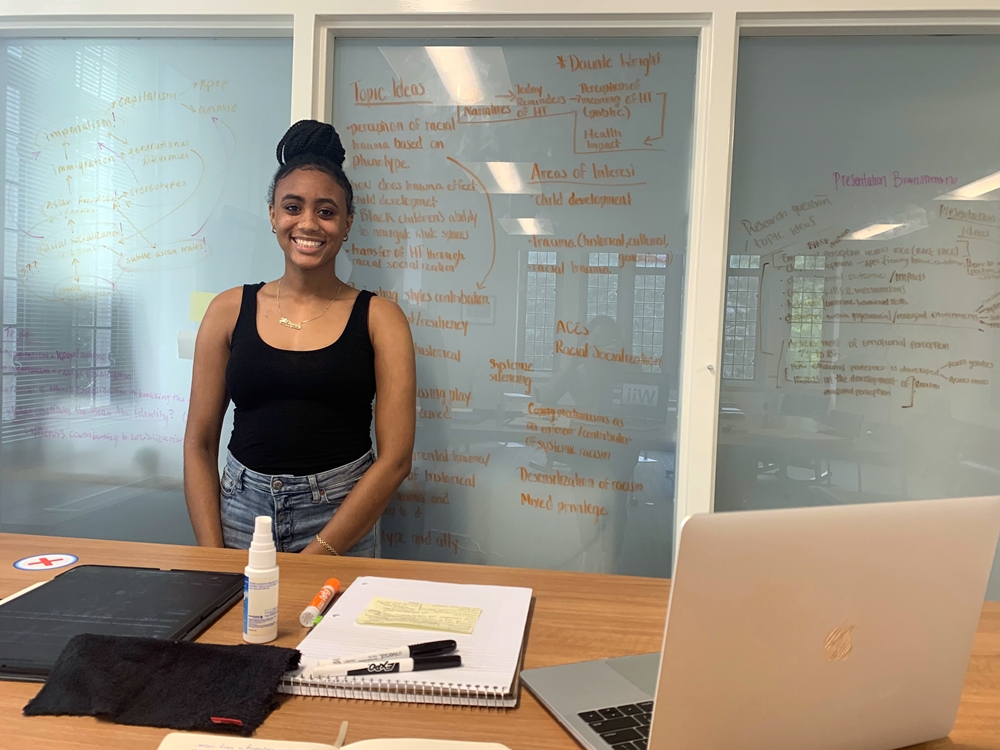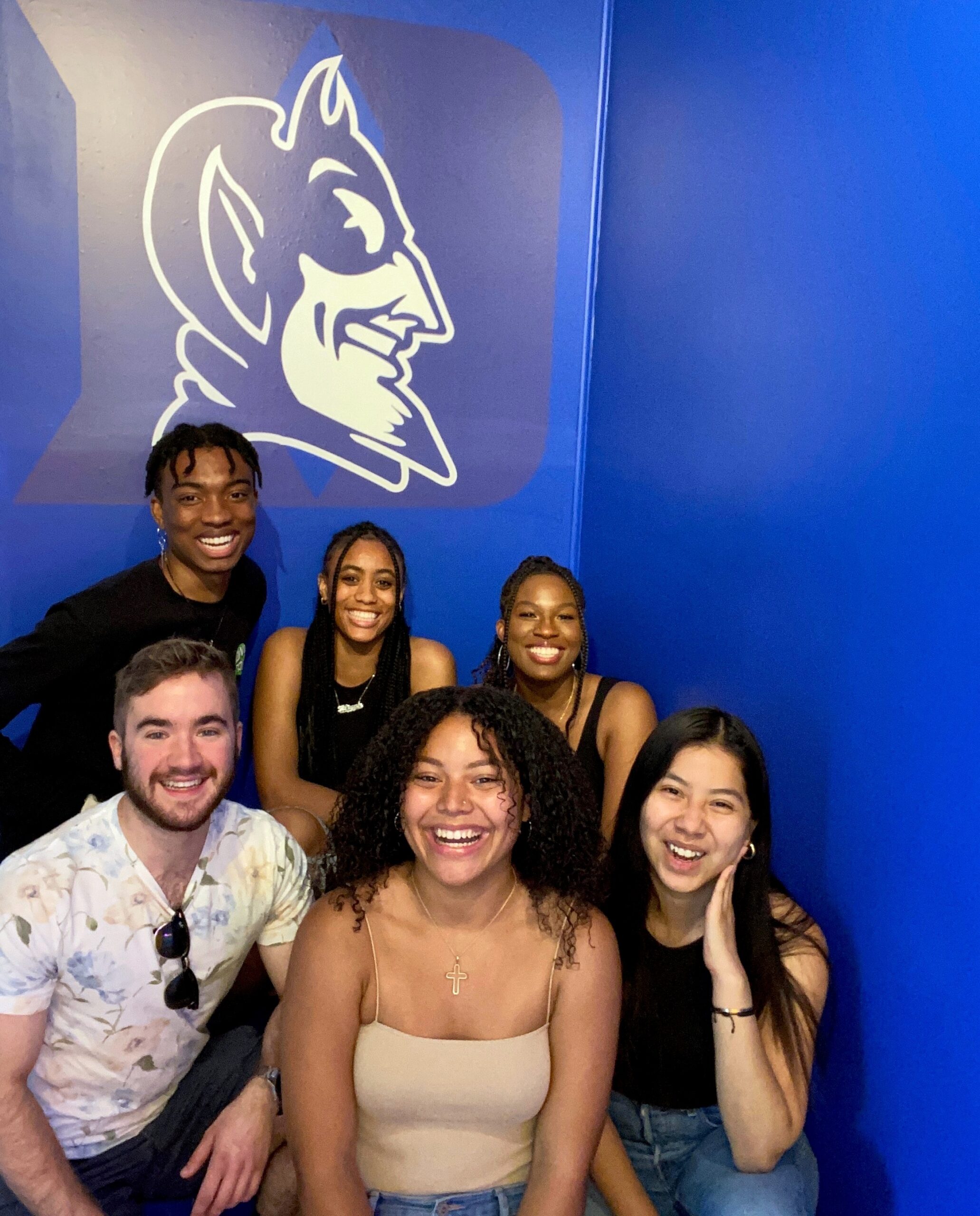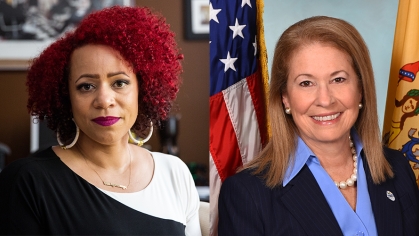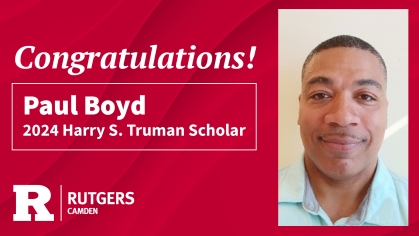Rising Senior Earns National Science Foundation Research Experience for Undergraduates
Truth be told, recalls Aliyah Jones, it all started with a bout of procrastination.

Jones, a double major in psychology and social work, is currently working in a child development lab at Duke University.
The rising Rutgers University–Camden senior was browsing her emails, trying to do anything other than start her work, when she spotted an email from one of her professors touting a National Science Foundation research experience for undergraduates (REU) at Duke University.
“I saw that it was a great opportunity to work with children in a development lab,” says Jones, a double major in psychology and social work.
With some advice from Rutgers–Camden’s Office of Scholar Development and Fellowship Advising, the Sicklerville resident applied, not actually believing that she had a chance.
“Truthfully, I saw it as a motivator to get in gear applying for more opportunities, because I had been procrastinating with that as well,” she says with a laugh.
Soon after, Jones received word that she had earned the “Summer Research Experience (REU): Lifespan Approaches to Diverse Psychological Science” at Duke.
The program, which provides underrepresented students with research, socialization, and networking skills, offers a unique research experience to learn methodological approaches across developmental, social, and cognitive neuroscience psychology.
“Only once I got in,” she says, “did I quickly realize what a big deal it was to land it.”
The Rutgers–Camden Honors College student is currently working on a study that examines any differences in the ways that Black and white mothers parent and socialize their biracial children. Over the course of the study, she is learning how to input statistical data, in addition to attending weekly lab meetings, small group meetings, and one-on-one sessions with mentors, along with other Duke undergraduates and faculty.

Jones says the research experience has been a rare and unique opportunity to see firsthand just how a simple idea evolves into a full-fledged study.
With the study still in its infancy, she says, she has had the rare and unique opportunity to see firsthand just how a simple idea – in this instance, deriving from a tweet – evolves into a full-fledged study. For instance, she says, she has been involved in ongoing discussions to determine what measures will be used to collect data on study participants.
In essence, she explains, it’s the work that comes before the work.
“When you read a study, you don’t realize the actual processes that go into creating,” she says. “I am getting a glimpse into all the things that you normally wouldn’t think too much about.”
On a personal level, Jones is exploring the many fascinating questions of psychology that she wanted to ask since, as a young girl, she discovered a National Geographic issue on the complexities of the human mind.
At Rutgers–Camden, she began to focus her interests on child psychology when she had the opportunity to work with children for two years via the Jumpstart program at the campus-based John S. and James L. Knight Early Learning Research Academy. The national initiative recruits and trains college students and community volunteers to work with preschool children in low-income neighborhoods.
She recalls that, regardless of how busy she was with her studies, she looked forward to seeing how the children were developing over the course of the academic year.
“It was extremely motivating,” she says. “That really helped develop my love for children and made me realize that I wanted to work with children as a career. It was truly a transformative experience in terms of developing myself personally and as a professional.”
In addition, Jones developed her leadership skills as a member of the Institute for Leadership and Action at Rutgers–Camden, even helping to host workshops for other students on leadership development skills such as time management and organizational planning.
As she prepares for her senior year, Jones has aspirations of one day working in child advocacy and planning that focuses on ensuring that children receive effective classroom resources.
Jones isn’t quite sure what the immediate future holds, but acknowledges that some of her best academic opportunities have come about without intentionally looking for them. However, she is just as quick to point out that Rutgers–Camden has been flush with opportunities to try new experiences and has a supportive network of staff and students to help make them possible.
“It’s helped push me in ways that I had never thought about,” she says.


